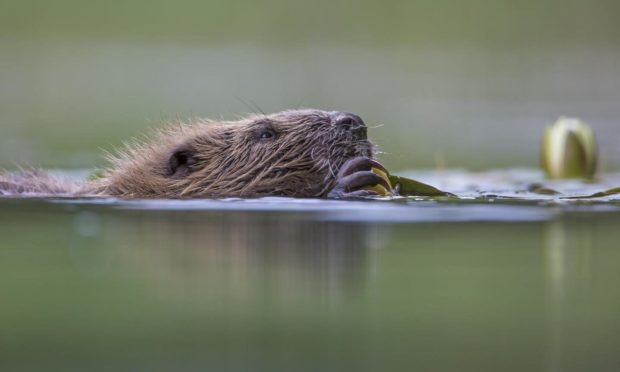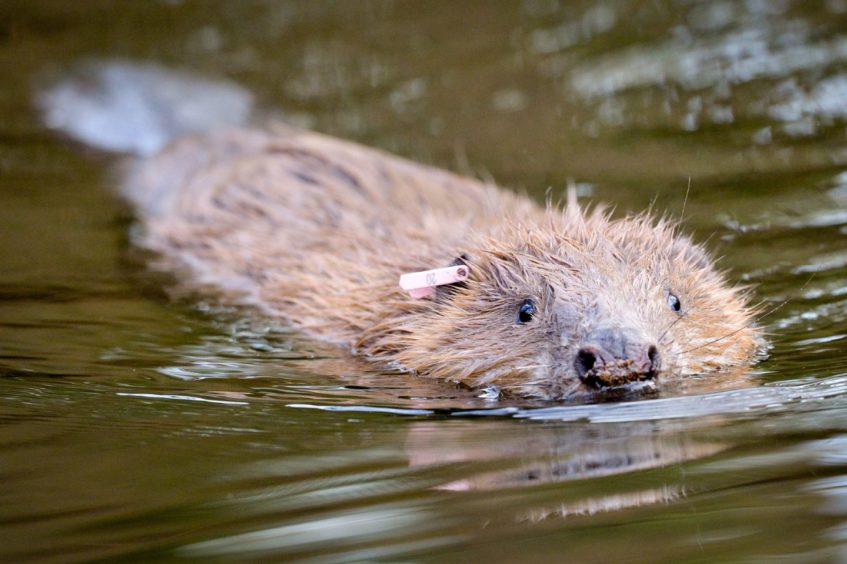A senior lawyer has told a judge how he believes a Scottish Government agency has made a “Faustian bargain” with landowners in its ‘unlawful” policy on beaver killing.
Aidan O’Neill QC used the phrase to describe the practice adopted by NatureScot in relation to how it attempts to control Scotland’s beaver population.
The phrase ‘Faustian bargain’ relates to the medieval legend of Faust, who made a contract with the Devil, exchanging his soul for unlimited knowledge and worldly pleasures.
Mr O’Neill told judge Lady Carmichael that beavers are considered by the government to be a protected species.
The advocate told the Court of Session on Wednesday that NatureScot however has granted licences to farmers to kill beavers in circumstances where the animal has destroyed or damaged agricultural land.
He said the policy breaches European law and undermines the status that beavers enjoy as a protected species.
‘Faustian bargain’
Mr O’Neill said: “So we have criticisms – individual criticisms we say are relevant to the lawfulness of these licences. But seen together, they are enough to point to a practice whether or not expressly avowed by the first respondents or owned up to by the first respondents which relates to their willingness to grant as part of basically a Faustian bargain – a political bargain perhaps – with the landowning interests that they will grant protective status to beavers but can still continue to shoot them on their land.
“That is not a bargain is possible under EU law but that seems to be the bargain that NatureScot have been instructed to put in place.”
Mr O’Neill is acting for charity Trees for Life, an organisation dedicated to rewilding the environment.
The charity believes NatureScot should make the killing of beavers a last resort when the animals have unwanted impacts on farming land.
It has raised an action against NatureScot, the Scottish Ministers and NFU Scotland – the organisations are contesting the action.
Trees for Life says that given the status of the beaver as a protected species, the correct approach to take to beavers is to adopt “precautionary” measures with regard to their population. The charity says killing beavers should only be allowed as a last resort.
Protected species
The Scottish Government declared beavers to be legally protected in 2019.
But NatureScot has issued dozens of killing licences when beavers are said to be damaging farmland.
This is despite laws on protected species requiring management to have the least possible impact on their conservation status.
Trees for Life says that if it is successful, it could allow conservationists to identify suitable sites across Scotland to which beavers can be moved to.
They say this could boost biodiversity, creating wildlife tourism opportunities and preventing potential damage to farmland elsewhere.
However, the Scottish Government states that beavers cannot be relocated to new areas within Scotland – this is despite NatureScot identifying more than 100,000 hectares of suitable habitat, the options for farmers whose crops are damaged by beavers are currently significantly limited.
The charity has raised more than £60,000 through a month-long crowdfunder campaign to cover the legal costs of the judicial review.
Scottish beavers ‘inbred’
On Thursday, Mr O’Neill also told the court that the current policy could create problems with ensuring the stability of the beaver population.
He said that evidence showed that beavers in Scotland are “inbred” and lack “genetic diversity” and that this showed the danger of allowing the current policy to stand.
Mr O’Neill added: ““The issue of genetic diversity is also raised. Again, there’s uncertainty about the genetic diversity in the population which we allow killing.
“So again we have doubts in sufficient genetic diversity but we allow that genetic diversity to be decreased by allowing for their continued lethal control despite the fact that many beavers within the catchment area are already fairly inbred.
“So we say again that is an indicator against allowing lethal control – killing the beaver population will decrease the genetic diversity of beavers.
“So again in terms of the facts and the law, we say this court should uphold the substance of the petitioner’s complaint that the first respondent’s policies and practices in allowing licences for lethal control is not EU law compatible.”
Ruth Crawford QC told Lady Carmichael that Mr O’Neill’s arguments were mistaken and that the policy is lawful. She asked Lady Carmichael to dismiss the action.
Ms Crawford added: “This petition should be dismissed.”
NatureScot are contesting the action.
The hearing continues on Friday.











